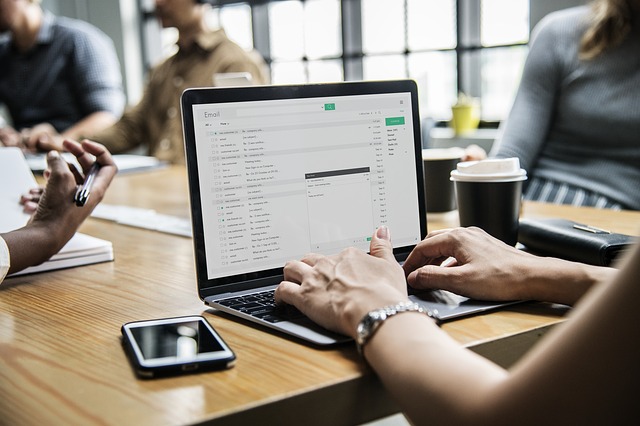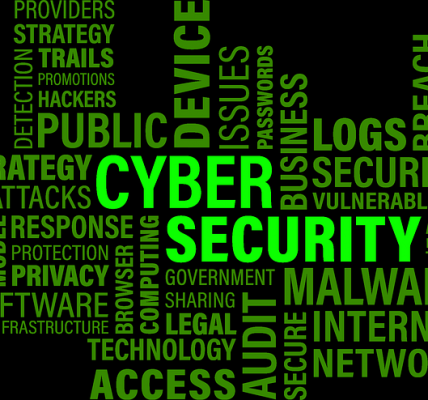
Staying safe online is as important now as it ever was. More and more small businesses are being hacked as they are not aware of the dangers out there or believe that their business is not important enough or big enough for hackers to bother with. Anyone can get hacked at any time, so ensuring that you keep your email account safe and secure will mean that nobody can get hold of any important information about your business or its clients. If you work solely through email, there may be a lot of data on there, including passwords for accounts. Here is how to keep your small business email account safe and secure.
Creating a Strong and Secure Password
Your password is one of the best ways to keep your business account safe. Unfortunately, so many people take it for granted that nobody would attempt to hack them and, therefore, they have simple passwords such as their birthday, a pet’s name or even their business name with a number at the end. Hackers will try many variations of the same passwords and it is scary how easily they may be able to guess yours.
Now, Apple phones suggest a unique password for a website for you, as they understand just how important it is to choose a strong and secure password. A good password should be made up of a combination of capitals and lowercase letters, alongside numbers and some symbols. This way, your password will be much harder to guess. This also includes password protecting your cell phone, tablet, and laptop. If they were stolen and you do not have these devices password protected, chances are you are already signed into your email account on these devices, so anybody could gain confidential information in a matter of minutes if your devices were stolen.
Use an Antivirus Software
Using antivirus software will assist in keeping your computer safe, and your email account safe with it. The best form of protection is to use antivirus software that you pay for, as some of the free versions do not offer as much protection. If you do not have the cash or do not want to invest, there are many free versions of antivirus software online, or often you can get a free trial to see why they are so worthwhile, but it is certainly worth investing your money to keep your data safe. If your business is online, an antivirus software won’t just protect your email account, but your own website and other websites in which you access, such as bank accounts. If you are unsure of the best antivirus software to download, check out the best ones in 2019.
Don’t Fall for Any Spam Emails
Unfortunately, so many of us have fallen for spam emails and even just opening these emails is enough to download a virus onto your computer or device. If you have security settings on your email account, these types of emails are often sorted into your spam folder, but sometimes emails can still get through. Ones that most popularly fool people include those pretending to be from Apple and PayPal. Before you open an email you are unsure about, check the email address that it has been sent from, as often this will give it away. Teaching employees about spam emails too ensures they are more aware of them. If you have been a victim of spam emails, report them immediately to whichever email provider you use, so they can get on the case and stop this from happening to anyone else. For more information about spam emails and why so many of us still fall for them, check out this useful article.
Choose Unique Security Answers
You could have a great password for your business email, but there are still other ways that people can attempt to get into your account. When choosing your security questions and answers for your business email account, you need to choose ones that are not easily guessed. Using questions such as the town you were born could be easy for some to guess, especially if the hacker knows who you are. Instead, choose questions and answers that are not obvious and cannot easily be found on the internet.
You would be surprised at how many people have the answers to their security questions easily accessible via Facebook and other social media accounts. If you own a business, it is important to have any personal information private, so consider your security options on Facebook when setting up your business. Often email providers now give you the option of writing your own security question, so make sure it is obscure as possible and a question only you could answer, just make sure it isn’t so obscure you will forget!
Never Share Your Password
There is no use in securing your email with a strong password and then writing it on a sticky note and sticking it to the side of your computer. You should never share your password with anyone and it is certainly not a good idea to leave it laying around anywhere which is easily accessed by others. If your email account is a shared account with other team members, these are the only people that should know the password and these employees need to be trusted.
They also need to know the importance of keeping the password safe and not writing it in their diary beside their desk, as this certainly defeats the object of a secure password. If you do need to write it down to remember it, write it in a secure folder that can be locked away. Also, be sure to change your password if someone does find out what it is, when an employee leaves, and every so often just for extra security measures.
Never underestimate the power of hackers, with many small businesses losing out on confidential information and money due to people getting a hold on their personal information through their emails. For a small business, this kind of event could cause them to have to shut down and the cost to startup again may be too much. Following these tips will help your small business email account safe and secure.










![Watch Video Now on xiaohongshu.com [以色列Elevatione perfectio X美容仪 perfectio X 全新仪器黑科技了解下]](https://www.techburgeon.com/wp-content/uploads/2019/07/perfectiox-singapore-150x150.jpg)
